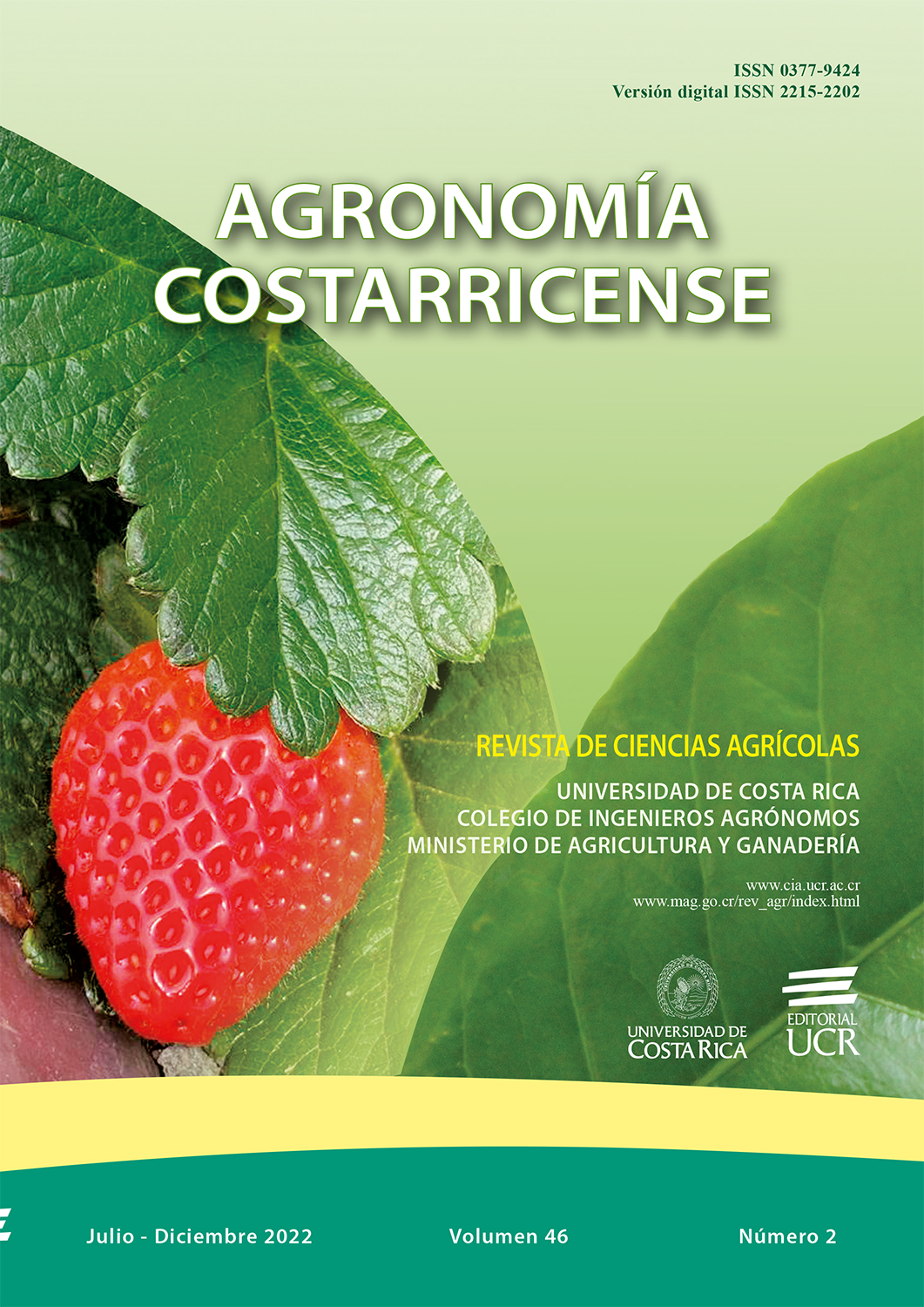Abstract
Introduction. Efficient microorganisms have become a common practice among sustainable agricultural management strategies and have been widely used for different purposes. Objective. To evaluate the effect of application frequencies of the bioproduct in the development of coffee tree and the control of diseases in its first year of planting. Materials and methods. The experiment was developed at the Agro-Forestal Experimental Station in Jibacoa, Villa Clara, Cuba. It was sprayed at 5 L.ha-1 (2% concentration) with different frequencies: monthly, bi-monthly, quarterly and a treatment without spraying (Control). One year after the plantation was established, the coffee trees were evaluated: morphology (height, stem diameter, crown diameter), diseases (rate of infestation and distribution of iron stain and rust). Results. Monthly application showed a tendency to improve the development of coffee trees. When sprinkling the bioproduct monthly, the infestation and distribution index of the iron stain decreased by 57.2% and 45.8%, respectively, compared to the control. In rust, the monthly and bimonthly application of the decreased the infestation index by 69.5% and 65.8%, respectively, and the distribution index by 60.6% and 57.9%, in the same way. Conclusions. Monthly sprinkling with is an ecological alternative to be used in the first year of coffee planting to control rust, the iron stain with a tendency to improve plant developmen.
##plugins.facebook.comentarios##

This work is licensed under a Creative Commons Attribution-NonCommercial-NoDerivatives 4.0 International License.
Copyright (c) 2022 Agronomía Costarricense


